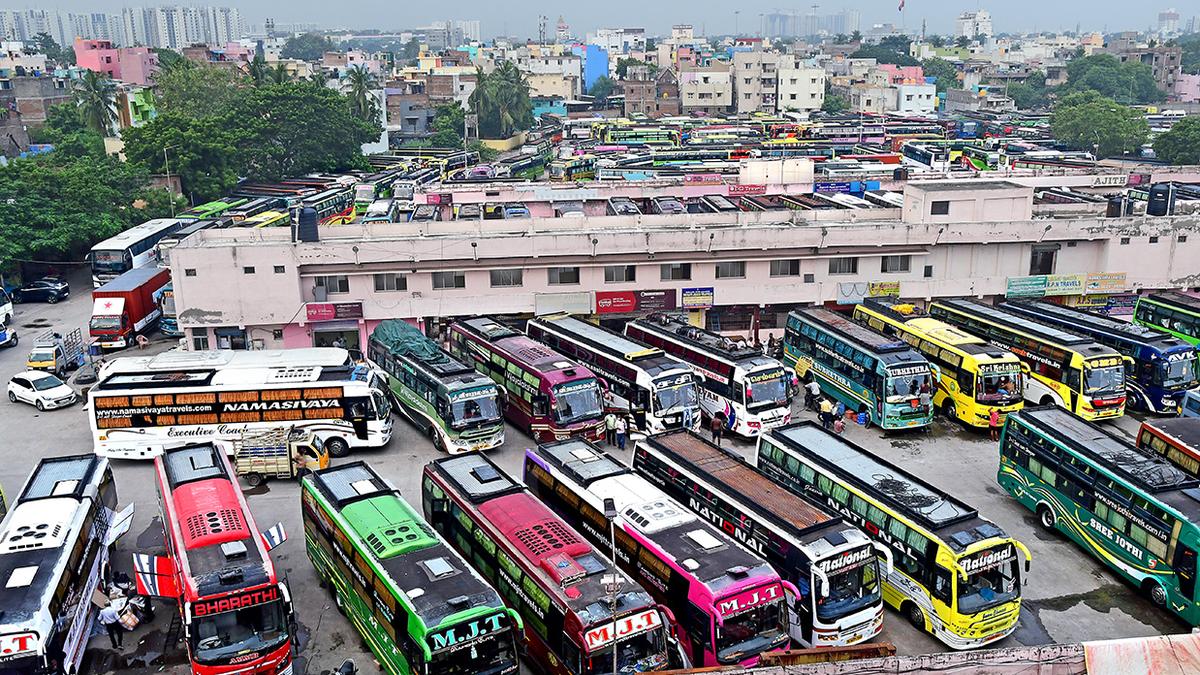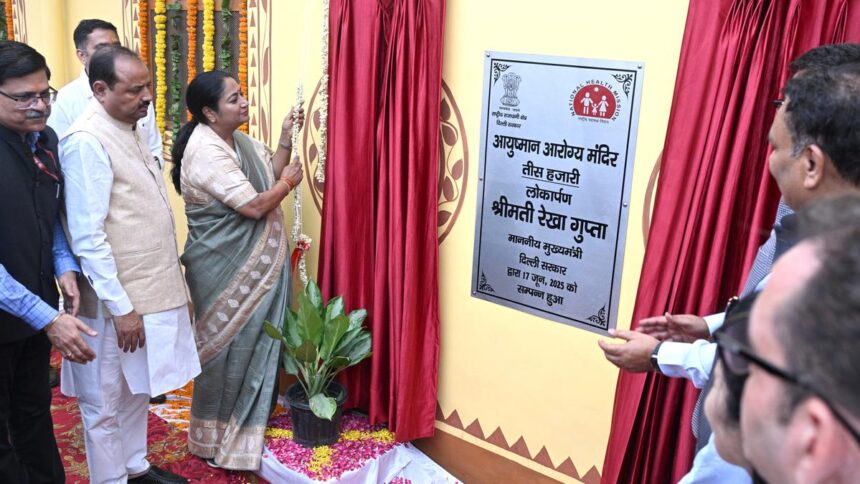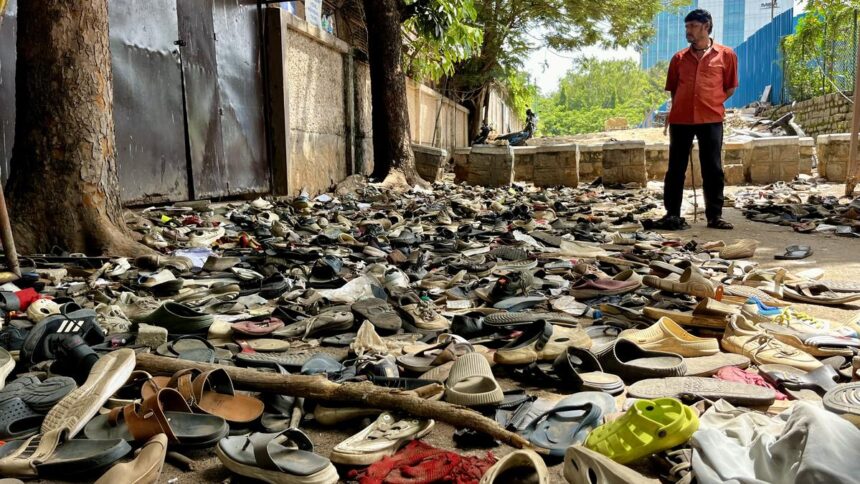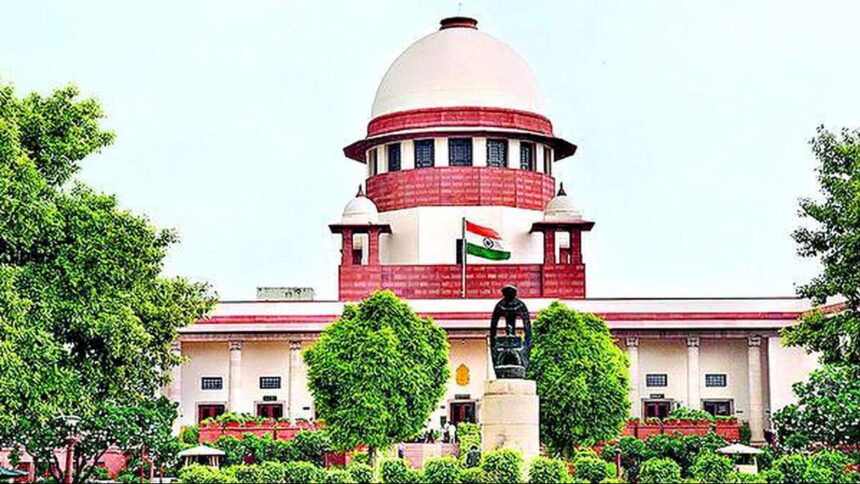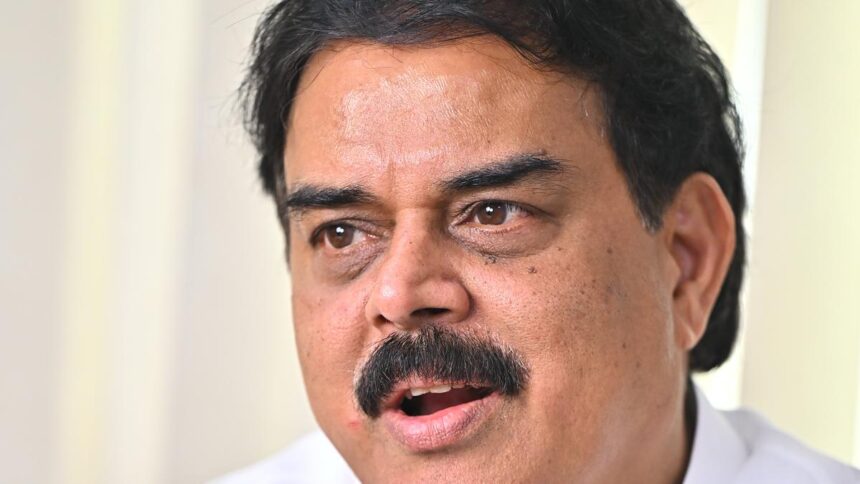
While private operators are willing to switch to electric buses, they have also expressed concern over high upfront capital cost.
The successful rollout of electric buses by the Metropolitan Transport Corporation (MTC) has led to a study by Institute for Transportation and Development Policy (ITDP) to examine the potential environmental impact and fuel savings the State could achieve if private bus operators switch to electric buses.
The report, titled ‘Accelerating Sustainability: Electrifying Tamil Nadu’s Private Bus sector’, prepared in association with the Bus and Car Operators Confederation of India and The Federation of Bus Operators Association of Tamilnadu, found that electrifying the 8,500 private buses operating in the city and across the State, which play a major role in transporting nearly 48 lakh passengers while competing with State Transport Undertakings (STUs), could help prevent carbon dioxide (CO2) emission to the tune of 84 lakh tonnes.
It also projects fuel savings of ₹ 24,000 crore in a decade and a reduction of 30%-40% in the cost of operation of the buses.
Sivasubramaniam Jayaraman of ITDP said, for the study, surveys were carried out with 153 private bus operators who expressed their willingness to switch to electricity but pointed out several barriers. These include high upfront capital costs, inadequate charging infrastructure, limited financing options, and strict permit regulations.
Mr. Jayaraman added that Tamil Nadu, already a pioneer in renewable energy such as wind and solar energy, could also become a leader in clean transport. He said this would require the State to develop an innovative financing model such as dry leasing, build a robust charging infrastructure network, and regulatory reforms of providing subsidy to streamline permits for electric buses. If these mechanisms are created the State can lead the journey in the electrification of buses thereby ensuring a modern, sustainable and efficient public transport system.
Bus shortage
The report also highlights that Tamil Nadu, including Chennai, faces a significant shortfall in city bus services. As cities continue to expand, the demand for stage carrier buses is expected to rise substantially. At present, the State has only 18 city buses per one lakh of urban population, while the Ministry of Housing and Urban Affairs (MoHUA) has set a benchmark of 60 buses per lakh population.
According to the study, the demand for urban stage carrier buses across 63 cities in the State is projected to be around 20,300, while currently only 7,909 such buses are available, including both private and public services.
With Chief Minister M. K. Stalin having announced the Tamil Nadu Electric Vehicle Policy 2023 and set an ambitious target of achieving 50 per cent renewable energy generation capacity by 2030, the electrification of the private stage carrier fleet is essential for meeting the State’s sustainability objectives.
The study also notes that the public transport system in the State is not only short of vehicles but also in need of cleaner and more sustainable options, as a significant portion of both public and private bus fleets is overaged.
T. Abinesh, a resident of Sholinganallur, said that with the Tamil Nadu Electric Vehicle Policy in place and the city seeing strong growth in electric vehicles, especially two-wheelers and cars, the government should focus on encouraging private bus operators transporting software engineers to shift from diesel to electric. He said this would help reduce pollution in the IT corridor along Rajiv Gandhi Salai.
Published – August 09, 2025 12:27 am IST







